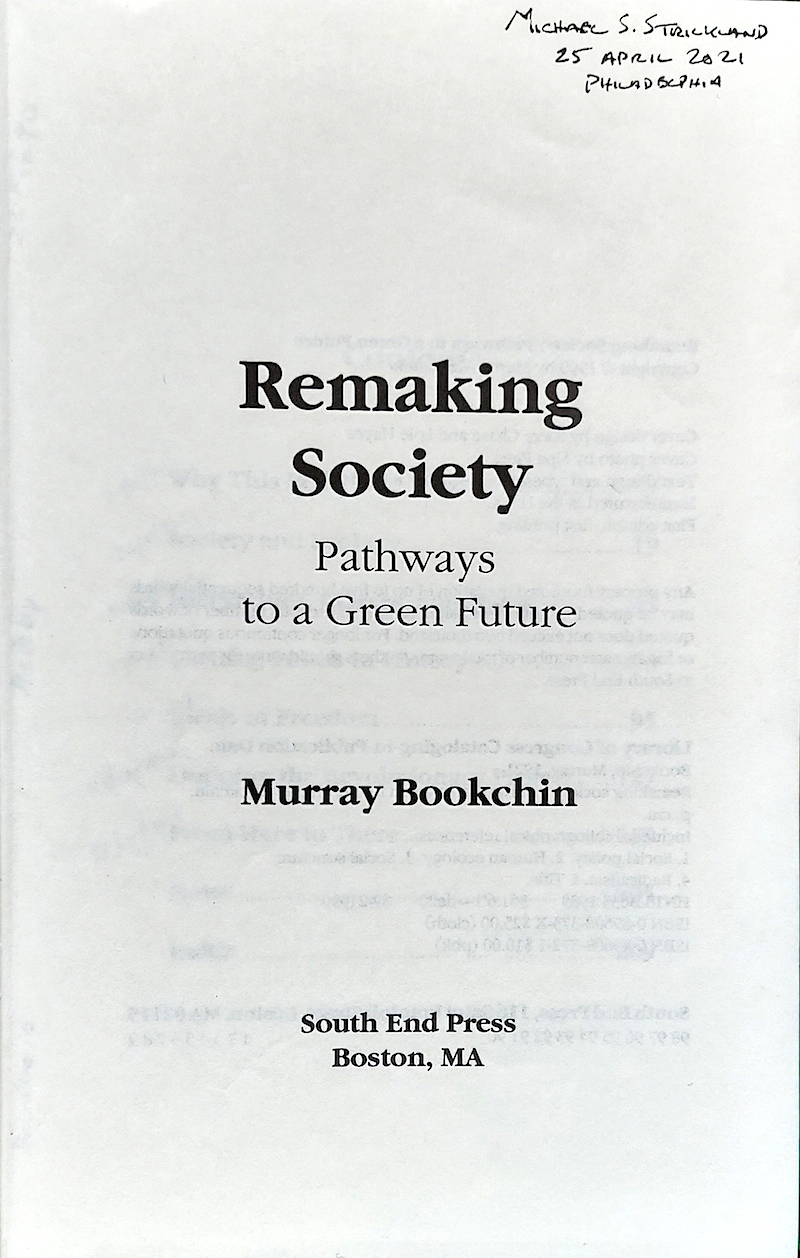
« The myth that population increases in places like the Sudan, for example, result in famine (not the notorious fact that the Sudanese could easily feed themselves if they were not forced by the American-controlled World Bank and International Monetary Fund to grow cotton instead of grains) typically represents the kind of arguments that are gaining popularity among many environmentalists. “Nature,” we are arrogantly told by privileged Euro-Americans who parade as “natural law” theorists, “must be permitted to take its course” — as though the profits of corporations, banks, and agribusinesses have anything to do with the “course” of nature » (p. 11).
« The American mind is formless enough without burdening it with “biocentric” myths of a Buddhist and Taoist belief in a universal “oneness” so cosmic that human beings with all their distinctiveness dissolve into an all-encompassing form of “biocentric equality.” Reduced to merely one life-form among many, the poor and impoverished either become fair game for outright extermination if they are socially expendable, or they become objects of brutal exploitation if they can be used to aggrandize the corporate world. Accordingly, terms like “oneness” and a “biocentric democracy” go hand-in-hand with a pious formula for human oppression, misery, and even extermination » (pp. 11–12).
« To worship or revere any being, natural or supernatural, will always be a form of self-subjugation and servitude that ultimately yields social domination, be it in the name of nature, society, gender, or religion. More than one civilization was riddled by “nature deities” that were cynically used by ruling elites to support the most rigid, oppressive, and dehumanizing of social hierarchies. The moment human beings fall to their knees before any thing that is “higher” than themselves, hierarchy will have made its first triumph over freedom, and human backs will be exposed to all the burdens that can be inflicted on them by social domination » (p. 13).
« Traditional radical theory is now in debris. Much that passes for socialism and communism, today, acts as a crucial support for the prevailing market society. Archaic slogans like the “nationalization of property” and a “planned economy” reinforce the growing centralization and rationalization of the corporate economy and the State. Marx’s almost reverential attitude toward technological innovation and growth threatens to express the most malignant goals of a technocratic ideology and a technocratic bureaucracy. Even the strategic political goals of orthodox radicalism, with its vision of the proletariat as a hegemonic class, are fading away with the displacement of workers by automation. No great movements are gathering under the banner of the red flag — only the ghostly rebels of the past who perished in the failed insurrections of a bygone era and the leaders who guided them into a historic limbo.
« By the same token, liberal environmentalism has become a balm for soothing the bad consciences of rapacious industrialists who engage in a tasteless ballet with environmental lobbyists, lawyers, and public officials. For this crew, nature is essentially a collection of natural resources. Their environmental ballets have the goal of soothing consciences according to an ethics of lesser evils, not an ethics of the greater good and virtue. Typically, a huge forest is usually “traded off” for a small stand of trees and a large stretch of wetlands for a small, presumably “improved,” wildlife sanctuary » (pp. 13–14).